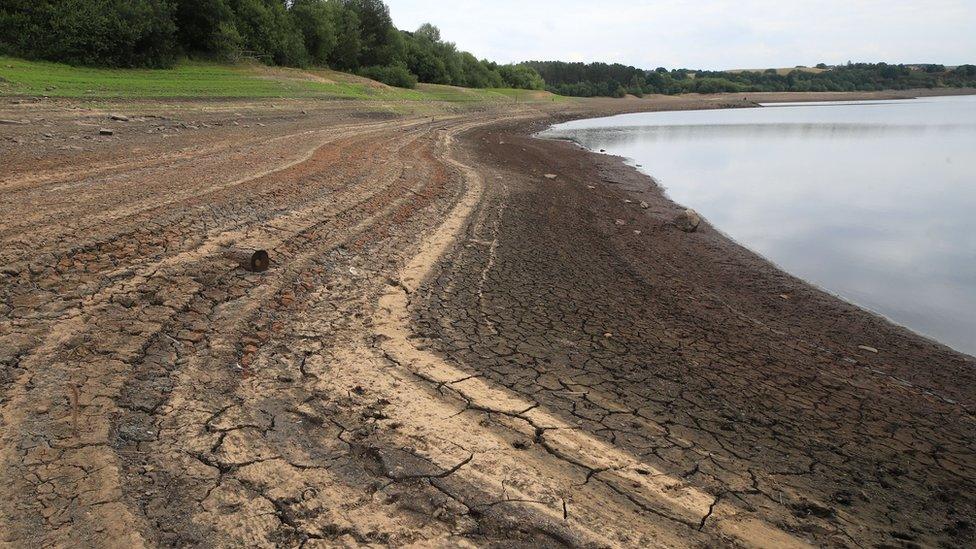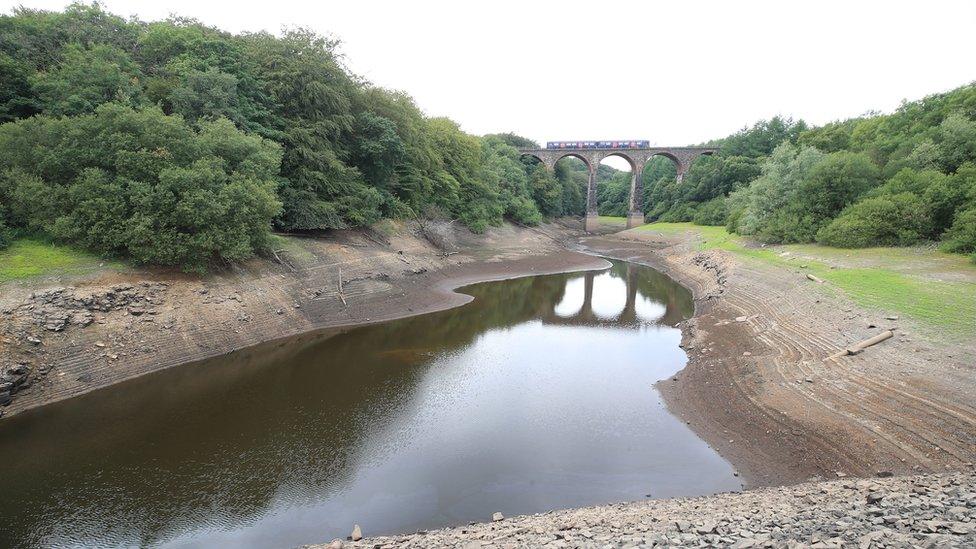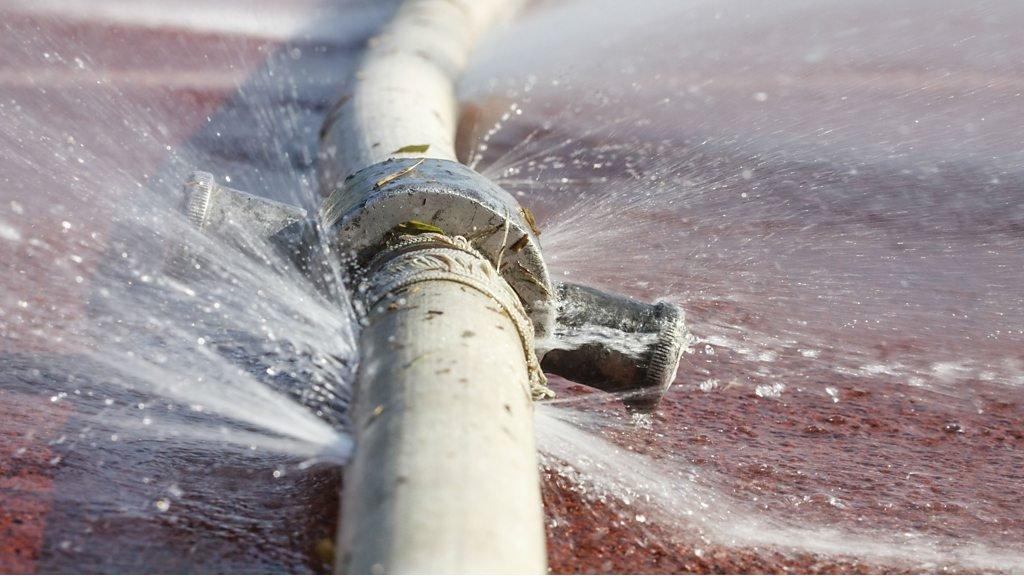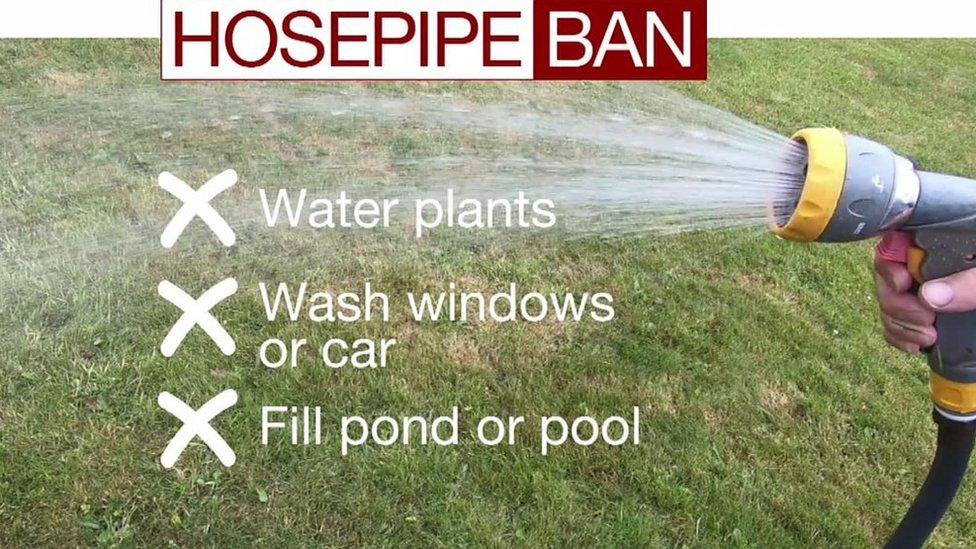UK weather: Driest start to summer on modern record
- Published

North-west England is set for a hosepipe ban due to low reservoir levels
After weeks of hot and sunny weather, it's official - the UK is experiencing its driest start to a summer since modern records began in 1961.
Just 50.8mm of rain fell between 1 June and 19 July, comfortably lower than the previous record of 58mm set in 2013.
England has been particularly dry, with only 21.4mm of rain since the beginning of June.
A Met Office spokesman told the BBC there was no "significant sign" of change "any time soon".
There is the possibility for some heavy showers and thunderstorms in parts of southern and eastern England on Friday evening, the Met Office says - but this will be no more than a temporary relief.
Although many Britons are cheering a sustained period when they can confidently leave their umbrellas gathering dust, the dry spell has led to lower reservoir levels.

The grass in Hyde Park, London, has been scorched yellow
In north-west England that means a hosepipe ban will be introduced on 5 August - unless there is a dramatic change in the weather between now and then.
United Utilities, which supplies north-west England, has asked for permission to take more water from three lakes in Cumbria to safeguard supplies.
Following a winter that saw the "beast from the East" bring severe cold weather to the UK, a build-up of high pressure over the country since late May has led to a summer at the other end of the weather scale.
The Met Office explained those circumstances had "suppressed the development of cloud, creating dry and sunny conditions".

Wayoh Reservoir at Edgworth, near Bolton, is one many depleted reservoirs
The east of England has seen just 1% of its long-term average rainfall in July so far, while no region has had more than one-fifth.
Data from the Environment Agency shows six areas of England have seen "exceptionally low" daily river flows over the past week. Another six have seen "notably low" levels.
The agency has taken to aeration to sustain oxygen levels for fish in some rivers during the hot spell.
Millions will be affected by the hosepipe ban
- Published19 July 2018

- Published18 July 2018
